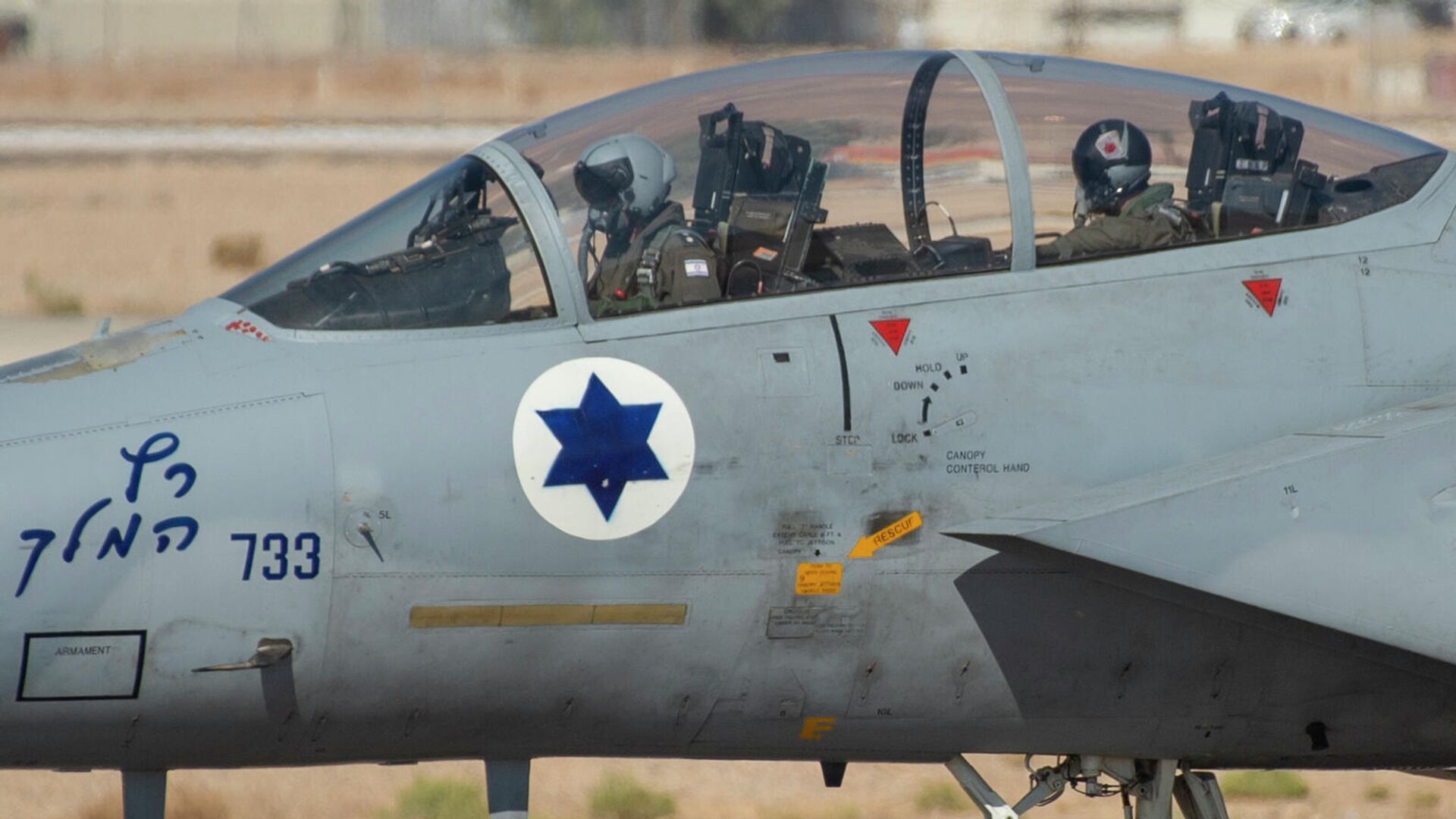https://sputnikglobe.com/20231102/what-did-russias-un-envoy-mean-by-saying-israel-doesnt-have-right-to-self-defense-1114671823.html
What Did Russia's UN Envoy Mean by Saying Israel Doesn't Have Right to Self-Defense?
What Did Russia's UN Envoy Mean by Saying Israel Doesn't Have Right to Self-Defense?
Sputnik International
Western powers have adopted a double-standard approach to the Gaza war and other conflicts, said Russian Permanent Representative to the UN Vassily Nebenzia during the UN General Assembly's special session on the Palestinian-Israeli crisis.
2023-11-02T17:32+0000
2023-11-02T17:32+0000
2024-01-30T10:27+0000
the united nations (un)
world
palestinians
international criminal court (icc)
security council
middle east
opinion
vassily nebenzia
israel
us
https://cdn1.img.sputnikglobe.com/img/07e5/0c/0d/1091498200_0:122:1590:1016_1920x0_80_0_0_fb87c617bbd2d69a49116a1f3e478064.jpg
Vassily Nebenzia called the US and its allies out for utter hypocrisy on Wednesday. According to the Russian ambassador, in crisis situations, Western countries are quick to lecture others to comply with humanitarian law and establish investigative commissions; they also rush to "impose sanctions against those who use force only as an extreme measure to stop the years-long violence."However, in the case of Gaza, the US stayed mum about "the horrifying destruction in Gaza, which exceeds everything that they criticize in other regional contexts multifold - strikes on civilian facilities, the death of thousands of children and the horrifying suffering of civilians amid a total blockade." The only focus of the US and its satellites is Israel's right to self-defense, Nebenzia pointed out.Still, there is the legal rub, according to him: under the international law Israel "does not have the right to self-defense" as an "occupying power" as per the International Court consultative ruling of 2004. Nebenzia then clarified that Russia recognizes "Israel's right to ensure its security", emphasizing the necessity of "a fair resolution of the Palestinian problem based on recognized UN Security Council resolutions.""It is important to recall the ruling of the Advisory Opinion of the International Court of Justice (ICJ) of 9 July 2004 reaffirming the right of self-determination of the Palestinian people and documenting the serial violations of the UN Charter and international law perpetrated by Israel. Notwithstanding the clear language of the ICJ, Israel has not implemented any of the specific ICJ rulings, and has been able to flout the UN again and again because the United States has abused its veto right in the Security Council (approximately 80 times!) to shield Israel from condemnation and UN sanctions," the retired UN independent expert continued.What are an "Occupying Power's" Obligations?De Zayas observed that within the framework of the court's rulings, Israel doesn't have the right to self-defense, but should be guided by international regulations for an "occupying power." The issue has repeatedly been raised at the UN by Palestinian diplomats.On May 21, 2021, UN Permanent Observer of the State of Palestine Riyad Mansour insisted in his letter to the international body that "the principle of self-defense cannot be applied by Israel to itself in the occupied territory of the State of Palestine.""As reaffirmed by the Security Council in its resolution 1860 (2009), the Gaza Strip is an integral part of the occupied Palestinian territory, including East Jerusalem, occupied by Israel since 1967," the letter read.Mansour argued that as an "occupying power" Israel is "bound by the relevant provisions of the Fourth Geneva Convention and all other relevant provisions of international law, including United Nations resolutions." International law stipulates that "occupying states" have increased responsibilities to protect local populations and are obliged to provide them with the basic health and safety supplies.However, from Israel's viewpoint, it's not an "occupying power," given that the State of Palestine is a partially-recognized state and is classified as a "non-member observer state" by the United Nations.Tel Aviv does not agree with the concept that it has "occupied" the Gaza Strip since 1967, arguing that it had completely withdrawn from the region in 2005 and that the region has been ruled by Palestinian factions since then.Israel also defies ICJ and ICC rulings. The International Court of Justice (ICJ) is a civil tribunal established by the UN that hears disputes between countries, but its advisory opinions are largely not binding. In contrast, the International Criminal Court (ICC) founded under the Rome Statute is capable of prosecuting individuals. In particular, the ICC previously sought to investigate possible war crimes in the Palestinian territories, but to no avail, since Israel is not a party to the Rome Statute and thus does not recognize the ICC tribunal's authority.'West's Culture of Impunity'The West is vocal about adhering to the ICC rulings, but it has never condemned Israel over the unwillingness to ratify the Rome Statute and participate in the international court investigations. Similarly, the US was quick to impose sanctions on September 2, 2020, on the International Criminal Court (ICC) prosecutor, Fatou Bensouda, over the ICC’s efforts to investigate US military personnel.The West's silence about the hideous sufferings is nothing but shameful, according to Christopher C. Black, an international criminal lawyer with 20 years of experience in war crimes and international relations, and a commentator on international affairs."The Jewish people once again became pawns of power politics, in fact one can argue that both the Jews and Palestinians have been set at each other's throats for the benefit of the USA, Britain and France and the rest. Instead of living in peace with one another in one state, they have been forced into a continual state of war. The consequences for both peoples are more than tragic," the international criminal lawyer concluded.
https://sputnikglobe.com/20231102/expert-gaza-war-hurts-israels-ties-with-arab-world-but-abraham-accords-wont-be-axed-1114665325.html
https://sputnikglobe.com/20231102/who-should-govern-gaza-strip-to-stabilize-region-1114663278.html
https://sputnikglobe.com/20231101/fact-check-how-far-does-us-military-involvement-in-the-israel-hamas-war-go-1114642863.html
https://sputnikglobe.com/20231102/us-has-blood-on-its-hands-over-israels-bombing-of-gaza--peace-campaigner-1114664860.html
israel
gaza strip
palestine
Sputnik International
feedback@sputniknews.com
+74956456601
MIA „Rossiya Segodnya“
2023
News
en_EN
Sputnik International
feedback@sputniknews.com
+74956456601
MIA „Rossiya Segodnya“
Sputnik International
feedback@sputniknews.com
+74956456601
MIA „Rossiya Segodnya“
israel, israel-hamas war, gaza, gaza war, gaza strip, right to self defense, un general assembly session, vassily nebenzia, israel defense force, international court of justice, occupying power, state of palestine partially recognized, palestinians
israel, israel-hamas war, gaza, gaza war, gaza strip, right to self defense, un general assembly session, vassily nebenzia, israel defense force, international court of justice, occupying power, state of palestine partially recognized, palestinians
What Did Russia's UN Envoy Mean by Saying Israel Doesn't Have Right to Self-Defense?
17:32 GMT 02.11.2023 (Updated: 10:27 GMT 30.01.2024) Western powers have adopted a double-standard approach to the Gaza war and other conflicts, said Russian Permanent Representative to the UN Vassily Nebenzia during the UN General Assembly's special session on the Palestinian-Israeli crisis.
Vassily Nebenzia called the US and its allies out for utter hypocrisy on Wednesday. According to the Russian ambassador, in crisis situations, Western countries are quick to lecture others to comply with humanitarian law and establish investigative commissions; they also rush to "impose sanctions against those who use force only as an extreme measure to stop the years-long violence."
However, in
the case of Gaza, the US stayed mum about "the horrifying destruction in Gaza, which exceeds everything that they criticize in other regional contexts multifold - strikes on civilian facilities, the death of thousands of children and the horrifying suffering of civilians amid a total blockade." The only focus of the US and its satellites is Israel's right to self-defense, Nebenzia pointed out.
Still, there is the legal rub, according to him: under the international law Israel "does not have the right to self-defense" as an "occupying power" as per the International Court consultative ruling of 2004. Nebenzia then clarified that Russia recognizes "Israel's right to ensure its security", emphasizing the necessity of "a fair resolution of the Palestinian problem based on recognized UN Security Council resolutions."
"Ambassador Vasily Nebenzia is correct in stating that Israel is an occupying state, whose occupation of Palestine has been declared illegal in countless United Nations resolutions," Professor Alfred de Zayas, a former UN Independent Expert on International Order, told Sputnik. "Israel's obligation under Security Council Resolution 242 of 22 November 1967 is to withdraw from the occupied territories and to allow the practical implementation of the right of self-determination of the Palestine People, an inalienable right anchored in articles 1,55, Chapters XI and XII of the UN Charter as well as in Article 1 common to the International Covenant on Civil and Political Rights (ICCPR) and of the International Covenant on Economic, Social and Cultural Rights (ICESCR)."
"It is important to recall the ruling of the Advisory Opinion of the International Court of Justice (ICJ) of 9 July 2004 reaffirming the right of self-determination of the Palestinian people and documenting the serial violations of the UN Charter and international law perpetrated by Israel. Notwithstanding the clear language of the ICJ, Israel has not implemented any of the specific ICJ rulings, and has been able to flout the UN again and again because the United States has abused its veto right in the Security Council (approximately 80 times!) to shield Israel from condemnation and UN sanctions," the retired UN independent expert continued.
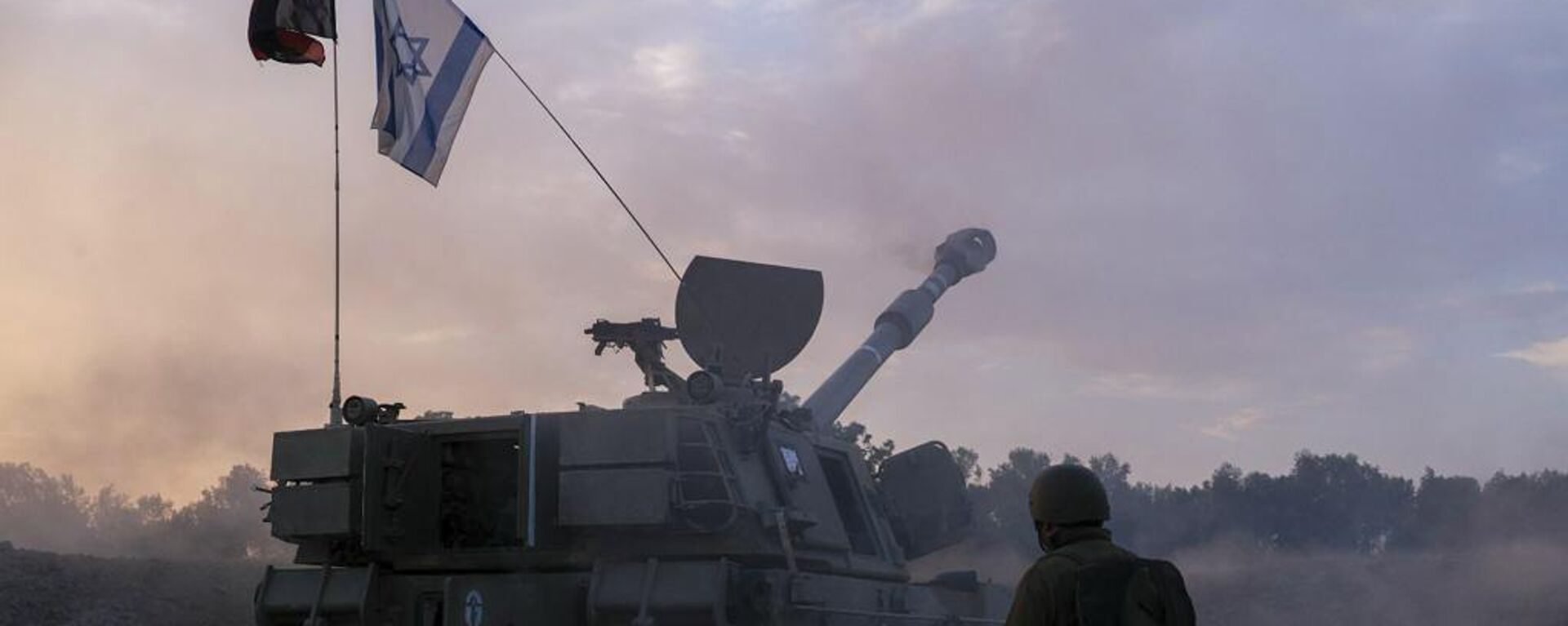
2 November 2023, 15:52 GMT
What are an "Occupying Power's" Obligations?
De Zayas observed that within the framework of the court's rulings, Israel doesn't have the right to self-defense, but should be guided by international regulations for an "occupying power." The issue has repeatedly been raised at the UN by Palestinian diplomats.
On May 21, 2021, UN Permanent Observer of the State of Palestine Riyad Mansour insisted in his
letter to the international body that "the principle of self-defense cannot be applied by Israel to itself in the occupied territory of the State of Palestine."
"As reaffirmed by the Security Council in its resolution 1860 (2009), the Gaza Strip is an integral part of the occupied Palestinian territory, including East Jerusalem, occupied by Israel since 1967," the letter read.
Mansour argued that as an "occupying power" Israel is "bound by the relevant provisions of the Fourth Geneva Convention and all other relevant provisions of international law, including United Nations resolutions." International law stipulates that "occupying states" have increased responsibilities to protect local populations and are obliged to provide them with the basic health and safety supplies.
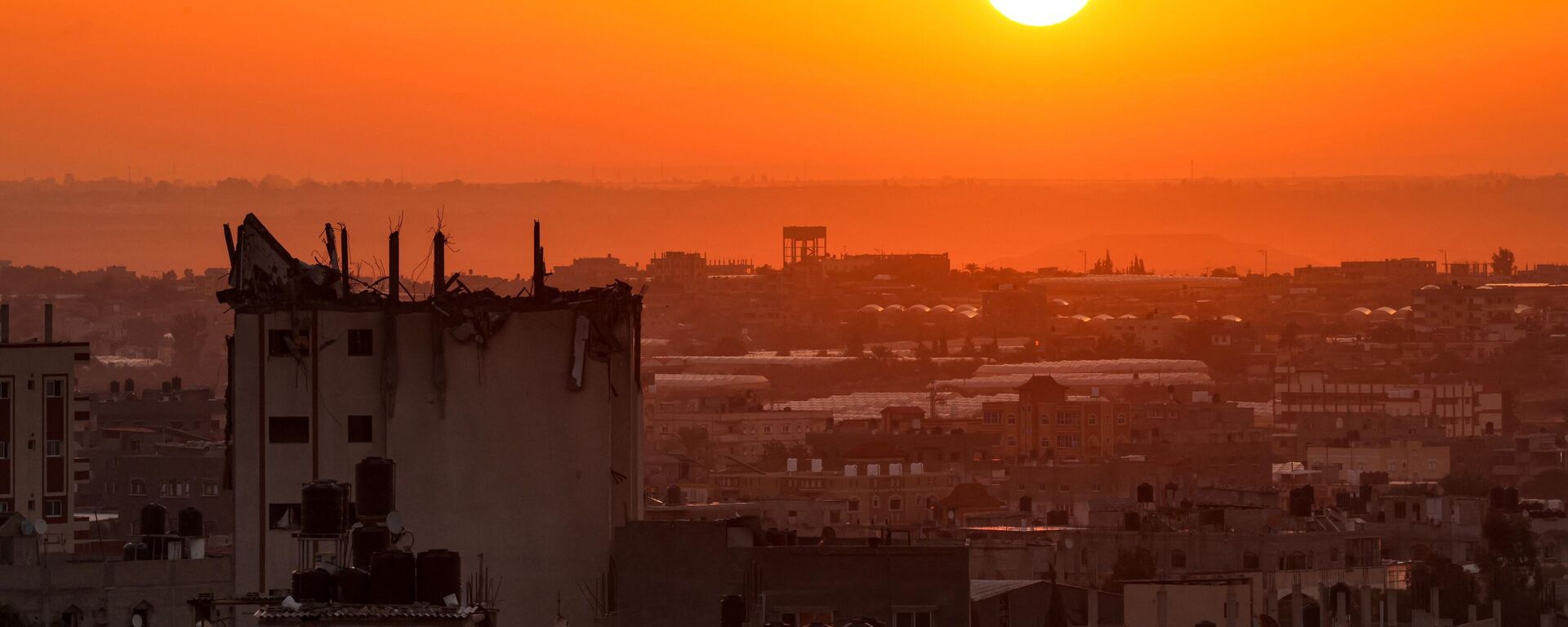
2 November 2023, 13:20 GMT
However, from Israel's viewpoint, it's not an "occupying power," given that the State of Palestine is a partially-recognized state and is classified as a "non-member observer state" by the United Nations.
Tel Aviv does not agree with the concept that it has "occupied" the Gaza Strip since 1967, arguing that it had completely withdrawn from the region in 2005 and that the region has been ruled by Palestinian factions since then.
Israel also defies ICJ and ICC rulings. The International Court of Justice (ICJ) is a civil tribunal established by the UN that hears disputes between countries, but its advisory opinions are largely not binding. In contrast, the International Criminal Court (ICC) founded under the Rome Statute is capable of prosecuting individuals. In particular, the ICC previously sought to investigate possible war crimes in the Palestinian territories, but to no avail, since Israel is not a party to the Rome Statute and thus does not recognize the ICC tribunal's authority.
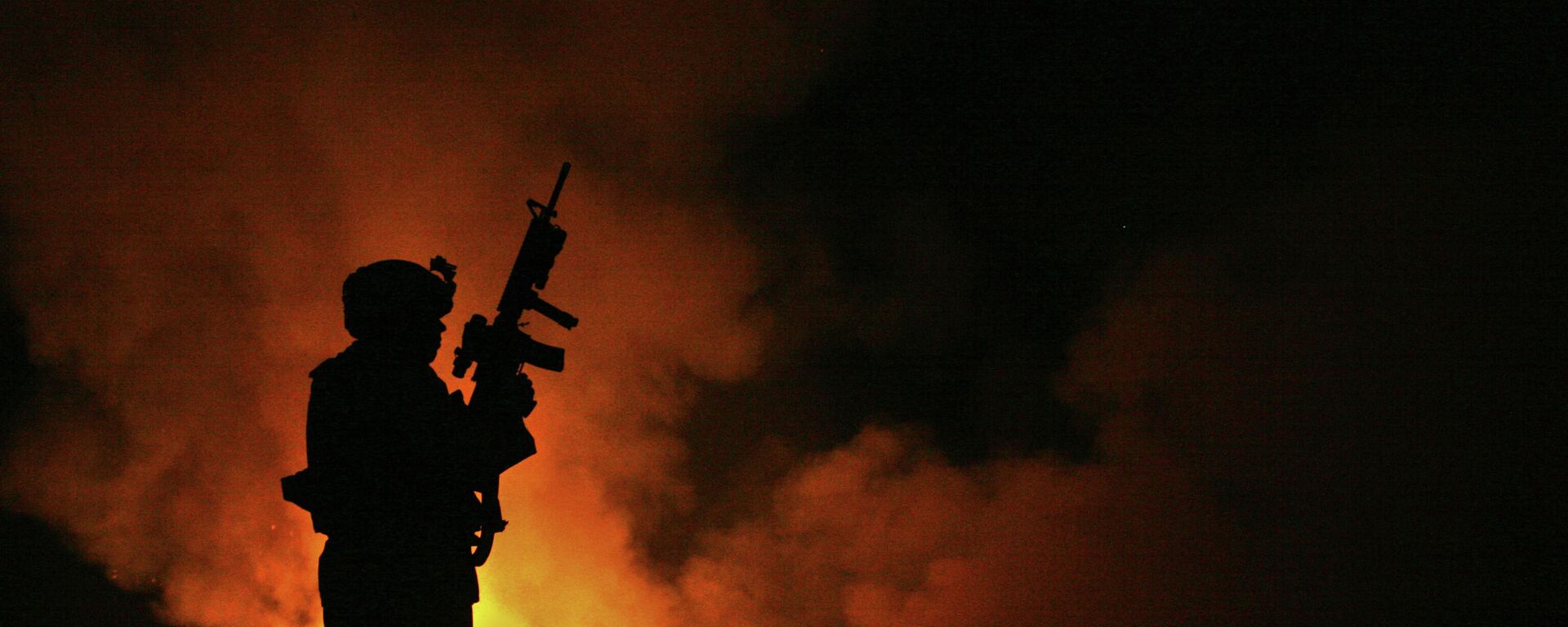
1 November 2023, 15:29 GMT
'West's Culture of Impunity'
The West is vocal about adhering to the ICC rulings, but it has never condemned Israel over the unwillingness to ratify the Rome Statute and participate in the international court investigations. Similarly, the US was quick to impose sanctions on September 2, 2020, on the International Criminal Court (ICC) prosecutor, Fatou Bensouda, over the ICC’s efforts to investigate US military personnel.
"We in the 'West' have a culture of impunity," de Zayas said. "US crimes in Vietnam, Afghanistan, Iraq, Libya, Syria, etc. have gone unpunished. It is no surprise that we do not condemn Israel's military attacks, also because we are complicit in them, since we give enormous military and financial assistance to Israel, enabling it to continue its colonization of Palestine and suppress the self-defense of the Palestinians. The "collective West" also has a "culture of cheating", and while we have been rhetorically telling the Palestinians that we recognize their right of self-determination, at the same time we co-finance the Israeli land grab and the new Israeli settlements on Palestinian lands."
The West's silence about the hideous sufferings is nothing but shameful, according to Christopher C. Black, an international criminal lawyer with 20 years of experience in war crimes and international relations, and a commentator on international affairs.
"The countries, who refuse to condemn Israel's attack on Gaza, which can only be described as an Israel[i] concentration camp for Palestinian[s], do not do so because Israel is an important part of the structure of world hegemony the USA and its allies are trying to establish but are failing at. Israel is their cat's paw in the Middle East," Black told Sputnik.
"The Jewish people once again became pawns of power politics, in fact one can argue that both the Jews and Palestinians have been set at each other's throats for the benefit of the USA, Britain and France and the rest. Instead of living in peace with one another in one state, they have been forced into a continual state of war. The consequences for both peoples are more than tragic," the international criminal lawyer concluded.
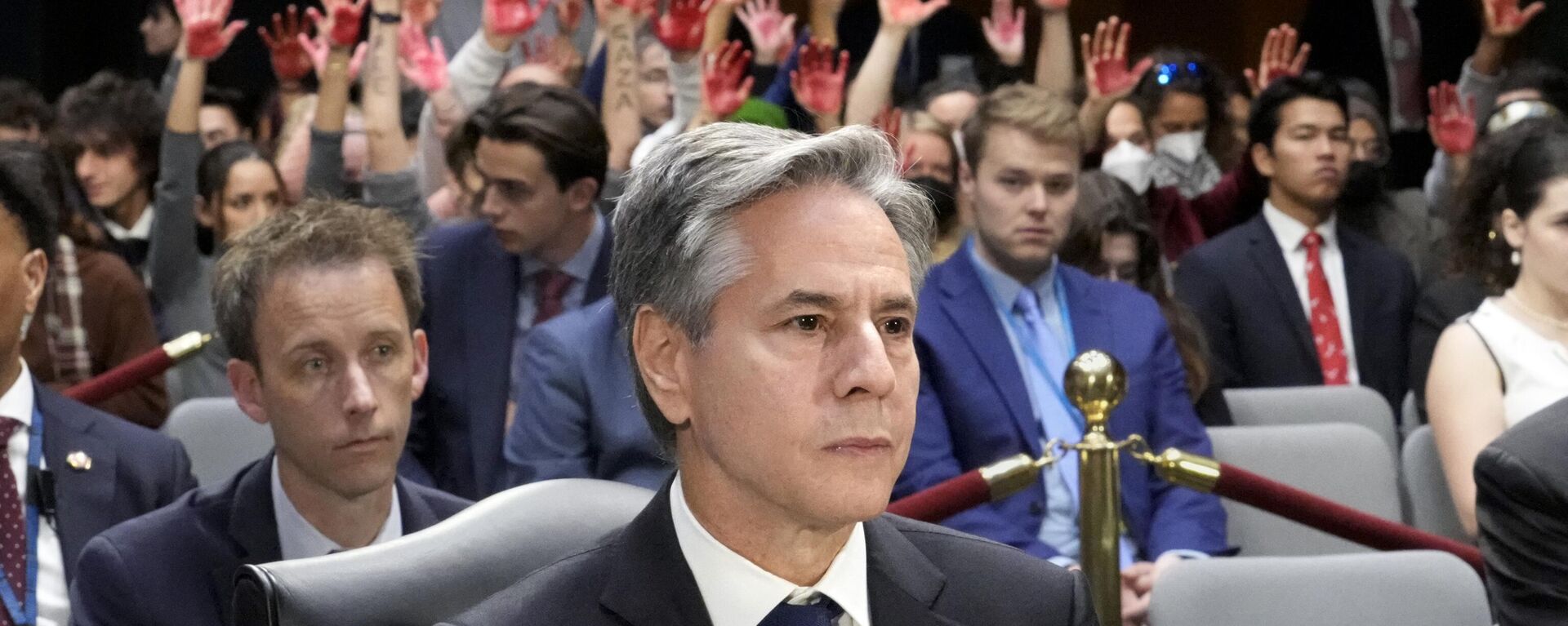
2 November 2023, 15:13 GMT

